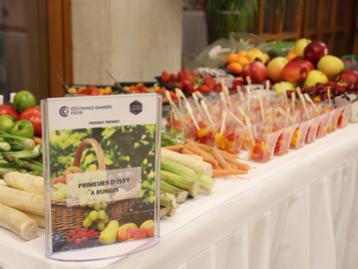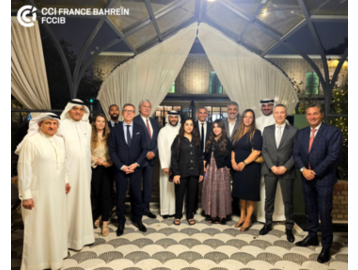Communication - Press
Concern over fresh food export rules
BAHRAINI food traders fear financial losses as adapting to new rules to export to neighbouring Saudi Arabia could take longer than the October 1 deadline.
They now require new certificates to export food products to Saudi Arabia; halal, ISO 22000, and hazard analysis and critical control points (HACCP) certifications.
Halal
Bahrain food traders currently get their products halal certified (permitted under the Islamic law) from certain centres before they are exported to Saudi.
However, the Saudi Food and Drug Authority (SFDA) said it no longer recognises these centres.
During a meeting organised yesterday by the Bahrain Chamber of Commerce and Industry (BCCI), traders raised concerns about the possibility of missing the looming deadline because obtaining the certifications, especially the ISO 22000, could take up to six months.
Process
Chicken, meat and fish are the top food exports from Bahrain to Saudi Arabia, followed by other products such as sweets.
“It is a long process for a business to obtain an ISO 22000 certificate, and even if they apply now they will not receive it by the deadline,” said Hussain Hamad Showaiter Sweets Group chief executive Dr Maryam Aldhain.
“There is still clarity required on the time frame for the entire process to be completed, or will the Saudi authorities recognise the process in stages?”
The meeting was chaired by SFDA enforcement and inspection executive director Dr Mohamed Al Dahas, where he briefed businessmen on the certifications – adding that the rules were not new but were being applied for the first time on Gulf traders as well.
“There are no changes to the rules, but what we are doing is making it more transparent now by applying them to other countries including those in the Gulf,” he said.
“Food manufacturers and exporters who export their products (from Bahrain) need these certificates to facilitate their access into the Saudi market.
“We are reaching out to our colleagues in Bahrain and briefing them about the certifications, and according to the decree issued, from October 1 all food imports into the Saudi market need to meet these requirements.”
The meeting was also attended by officials from the Health Ministry and the Industry, Commerce and Tourism Ministry, who interacted with nearly 50 businessmen taking part.
It was held at the BCCI headquarters in Sanabis and organised by its Food Wealth Committee to educate traders on how to avoid financial losses or disruption at the port as a result of non-compliance.
Committee chairman Khalid Al Amin also told businessmen that talks on providing a grace period to Bahraini traders were being discussed in order to help them during the transitioning period.
“Chicken, meat and fish are top food exports from Bahrain to Saudi followed by other products such as sweets,” said Mr Al Amin.
“All of them have to adjust to the new rules that were already in place but Bahrain was granted an exception.
“Traders in Bahrain have started applying for the certificates, but this will take time and it is likely they will miss the October deadline.
“However, Saudi authorities are flexible and understand the concerns of the Bahraini food traders and we are in talks for a grace period for the first few months.”
Validation
Mr Al Amin also revealed that Saudi health authorities were in contact with their counterparts in Bahrain to validate the halal certifications.
“There is an office of a Dubai-based Halal certification centre in Bahrain that is currently issuing certificates,” he added.
“The process has started and now the plan is that laboratories at the Health Ministry will do tests for exported products to Saudi and issue the certificates.”
However, he said food traders were angered by the added costs to obtain all three certificates.
“It is an added cost to the business, but now once our traders get these certificates, they can export it around the world,” he said.
Indonesian Embassy officials previously told the GDN that talks were underway between Bahraini authorities and the National Islamic Finance Committee (NIFC) to set up a halal certification agency in Manama.
Bahraini exports to Saudi Arabia account for about 60 per cent of the volume of trade exchange between the two countries.
With a value of BD113 million, Saudi Arabia was ranked the top importer of Bahraini products, followed by the UAE with BD71m and Egypt in third place with BD69m during the fourth quarter of last year, according to a report by the Information and eGovernment Authority.
Source: http://www.gdnonline.com/Details/585551/Concern-over-fresh-food-export-rules


